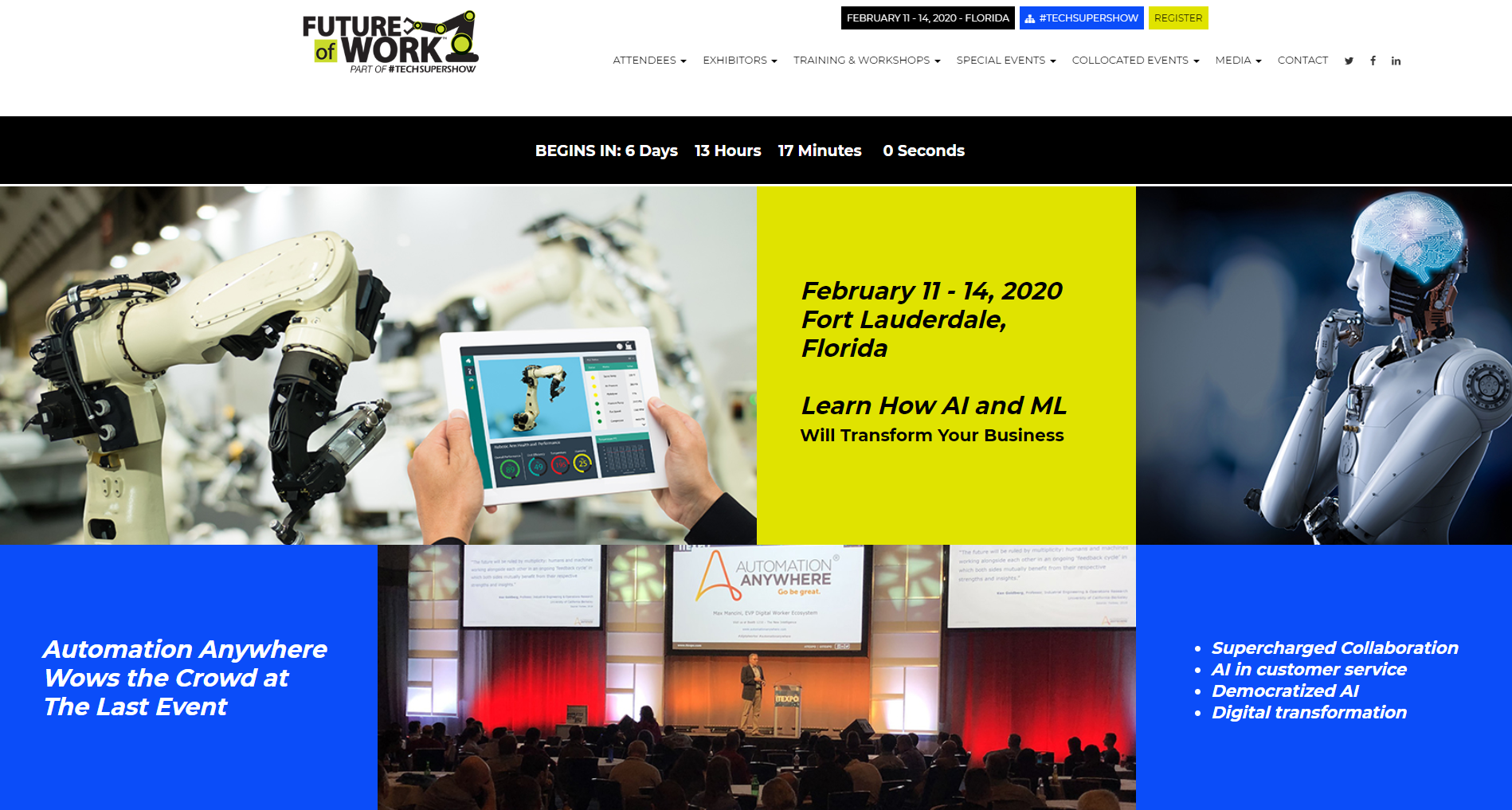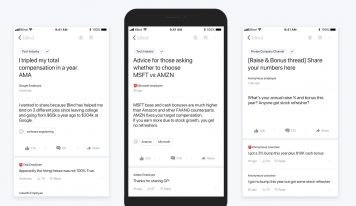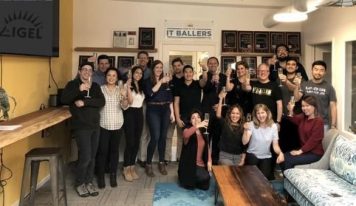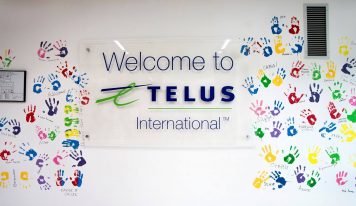The world’s Future of Work Expo takes place next week Feb 11-14 in Fort Lauderdale, FL. and it kicks off the year in terms of selecting products and services which enable the future of work. We had a moment to get exclusive thoughts from the conference chair, Jon Arnold. He is a visionary and thought leader and has tremendous insight into how the world is changing and organizations need to evolve to keep up.

Companies are rapidly embracing the future of work (FoW), why?
Well, they’re certainly trying to adapt and if possible, get ahead of the curve for what FoW entails. Of course, the term “FoW” must be taken with a grain of salt, since we can’t predict the future, and the terms implies that it will be different – otherwise we wouldn’t be talking about it now.
What really matters in 2020 is that the digital workplace is here now, and it’s evolving in ways we don’t fully understand. Two forces are driving this – technology change, and the ascendancy of digital natives, who are now represent the dominant age demographic in the workplace. Together, these trends are transforming the workplace now, and for businesses that want to attract and keep top talent, they have little choice but to embrace FoW.
How are careers changing as a result?
It’s probably too early to talk about careers changing specifically due to FoW, but clearly there will be needs for new skills and types of roles. We’re seeing new types of job and titles now, such as Customer Experience Officer or Digital Evangelist, and these are largely driven by the impact of new technologies. Work is increasingly being defined by the technology around us, and career success will soon depend on how well we use that technology as much as the formal skills needed for doing the work itself.

Since technology is constantly changing, this means that careers will be more project-driven rather than based on following a linear progression of success built up over a period of time using a fixed set of skills. As such, there will likely be less upward mobility in most jobs, and organizations will maintain flat hierarchies. In this environment, adapting to change is the key to longevity, and the concept of a “career” will have a shorter lifecycle, where workers will gravitate to where the best projects are, rather than the tenuous promise of a stable, long-term role they can grow into over time.
Is new job training needed in the workplace?
Of course, but as we saw from last year’s FoW event, the right type of training really starts much earlier than the workplace. There’s a strong case to start training for FoW in grade school, and this ties into a broader narrative for getting more students into STEM streams of education. There’s certainly more to education than Science and Technology, but given how tech-centric our world is now, there is very little in school curriculae to prepare students for the future.
We don’t all need to be coders, but FoW does demand a level of technology literacy that public education does not really provide. This topic will continue to be examined at this year’s FoW event, and it’s a genuine concern for employers, as many of them struggle to find new hires with the right skills to thrive in today’s workplace.
How are AI and ML changing the workplace beyond FoW?
This depends how broadly you define FoW, not just in terms of what constitutes “work”, but also how far down the road you’re looking. At some point, the “future” will be here, and we’ll stop calling it FoW. Ultimately, that point will be reached when almost all forms of work have been automated, and “machines” are able to do our jobs better than humans can – but is that really the end game? This is clearly a be-careful-what-you-wish-for scenario, and the long tail of FoW is really anybody’s guess.
Even if AI and ML get halfway down that path, the concept of the traditional office environment will change. The workforce will become increasingly distributed, with less personal interaction, and more virtual forms of working and collaborating. There will be less need for office spaces, and from there, less need for cars and travel. AI technologies will get to the point where workers can have virtual agents that can interact with other virtual agents, doing all the tedious work that takes up so much of our day.
This “brave new world” does hold some promise, but the impact of these changes means that workers will need different skill sets. As noted earlier, success for FoW will be based on the skills workers bring to their jobs, so the impact of AI/ML goes back to the classroom to properly prepare students for what’s coming in the workplace.
Do you see the democratization of AI and ML?
Not really. That would be a great scenario, and while the democratization of information may be the ultimate virtue of the Internet, things are more complicated with AI. As messy as the Internet is, AI is far more complex, and few of us have the data science background to really understand it. Unfortunately, as AI matures and becomes more central to how we do things, its complex nature very likely ensures that control will be in the hands of the digerati.
This is the stuff of dystopian science fiction, and while it would be great for our benign nature to prevail, I’m not optimistic that will happen without external forces curbing market forces. AI is already the domain of a few giant companies and institutions, and that’s not going to change unless industry forces emerge to self-regulate, and/or the public sector develops policies and regulations to ensure AI is used to support the public good. There’s much more to discuss here, but this is well outside the scope of our conference.
Who will be the leaders in FoW solutions?
In basic terms, the leaders really should be the ones who reflect the above ideals to democratize AI. For them, the business value comes from the data produced from AI that make FoW a good thing. In other words, workers being more productive, making smarter decisions, less wasted time, lower costs, faster time to market, etc.
Hopefully, that’s what we’ll get, but if we’re not careful, the leaders will be those who make it much easier for employers to monitor employees, control their access to information, ensure behavioral conformity, shape company culture, etc. This is certainly the dark side of FoW, but it’s still early enough to keep it in check and ensure that FoW is based more on things that bring out the best in people.
Which organizations are leading the adoption curve?
At a high level, these would be companies already well along on their digital transformation journey, as FoW is largely being shaped by digital technologies. While the usual suspects would be companies that are in technology-centric sectors such as software development or biosciences, the reality is that there are early movers in every sector, including traditional spaces such as retail, insurance or government.
The best indication of leading adopters would be companies with young workforces, as well as those struggling to keep up with changing customer expectations. The common thread here is the rise of digital natives, and their fundamentally different nature compared to the older generations of digital immigrants. As consumers, they expect personalized service, and that doesn’t come from organizations bound too tightly with legacy technologies and business processes. By extension, they will not be very productive in workplaces like that, so FoW will largely be dictated by the need to properly support this demographic.
You are the conference chair of the world’s only Future of Work Expo Feb 11-14, 2020 Fort Lauderdale, FL. How are you shaping the event?
Having co-chaired the event last year, I got a first-hand account of every session and every speaker. The level of interest in our content was high across the board, but I also came away with a sense as to which things worked best and were worth re-visiting this year. As such, we’re continuing with many of the topics, but new ones have been added to keep the agenda fresh. This isn’t happening just because we think we know what the audience wants to see, but also because new sponsors and speakers have come to us wanting to share their vision for FoW.
This is good validation of how FoW is emerging as a new space that I view as being an integral part of the communications technology landscape. I should add that this event is also being shaped by my ongoing work as an independent analyst covering communications and collaboration, with an increased focus on both digital transformation and future of work.
What other exciting information is there to share about the conference?
As our agenda comes into tighter focus, it’s really interesting to see how FoW cuts across so many disciplines and tracks covered in other ITExpo sessions. By nature, FoW is a broad term, and it’s reflected by the range of topics we’ll be covering. For this reason, I believe that anyone attending ITExpo will find our sessions of interest, and if you do, I think you’ll be surprised by all the interesting ways the workplace is being reshaped by today’s technologies.
What is the one best way companies can become ready for the FoW?
Of course, the starting point is to attend our event! Being ready to embrace new technology is a key part of being prepared, but more important is the need to think through how these technologies will impact everything around work. The workplace as we know it is going to change dramatically over the next few years, so the “future” will be here sooner than you think. Attending our event is a great way to connect all the dots now so you don’t get blindsided later on. I hope to see you there.






